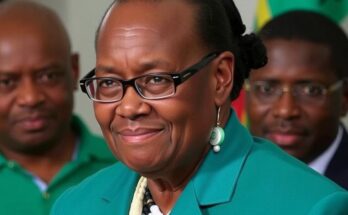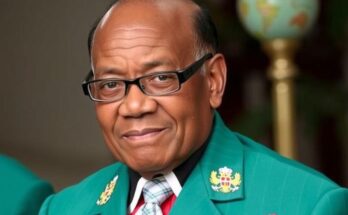In the 2024 elections in Southern Africa, established liberation movements faced significant losses, driven by a younger electorate prioritizing economic opportunity and government accountability over historical ties. Notable outcomes included the end of the Botswana Democratic Party’s 58-year rule, diminished support for the African National Congress in South Africa, and a narrow victory for SWAPO in Namibia. Rising public discontent and protests following elections in Mozambique and Comoros further underscored the shifting political sentiments across the region.
In the 2024 elections across Southern Africa, longstanding liberation parties experienced significant electoral declines, marking a potential shift in the political landscape. While many regions in Africa grapple with instability, Southern Africa has maintained relative democratic stability. However, the desire for economic opportunity and government accountability has overshadowed the historical relevance of these parties, compelling younger voters to demand change over recorded legacies. This year witnessed noteworthy developments, including the end of decades-long governance by the Botswana Democratic Party, which lost to an opposition coalition. In South Africa, the African National Congress grappled with its largest electoral defeat since 2009, losing majority control for the first time since apartheid’s conclusion. In Namibia, while SWAPO retained power with a remarkably narrow majority, it also faced a record low in parliamentary seats. This trend indicates a growing discontent among voters, particularly the youth, who prioritize present-day governmental performance over historical affiliations. Additionally, protests erupted following elections in Mozambique and Comoros, emphasizing the increasing demands for responsive governance. The evolution in voter sentiment suggests a significant political realignment may be underway in the region, as citizens seek governments that genuinely reflect their aspirations.
The 2024 elections in Southern Africa were characterized by transformative electoral shifts, particularly for historically dominant liberation movements. As younger voters emerge, the historical correlations with colonial liberation have diminished, leading to a demand for accountability and effective governance. This phenomenon reflects broader trends across the continent, where public discontent is rising against long-standing political establishments. In a region once deemed stable, the events of this electoral cycle highlight an unpredictable political future, influenced heavily by economic conditions and youth expectations.
The 2024 elections in Southern Africa ostensibly marked a pivotal moment in the region’s political journey, signaling a decline for long-standing liberation parties in favor of new political dynamics driven by younger voters. Voter discontent remains centered on economic challenges and the quest for worthy representation, indicating that the traditional foundations of political power are being reevaluated. The emerging trends suggest a pressing need for ruling parties to adapt or risk losing electoral favor in a rapidly changing political environment.
Original Source: abcnews.go.com




